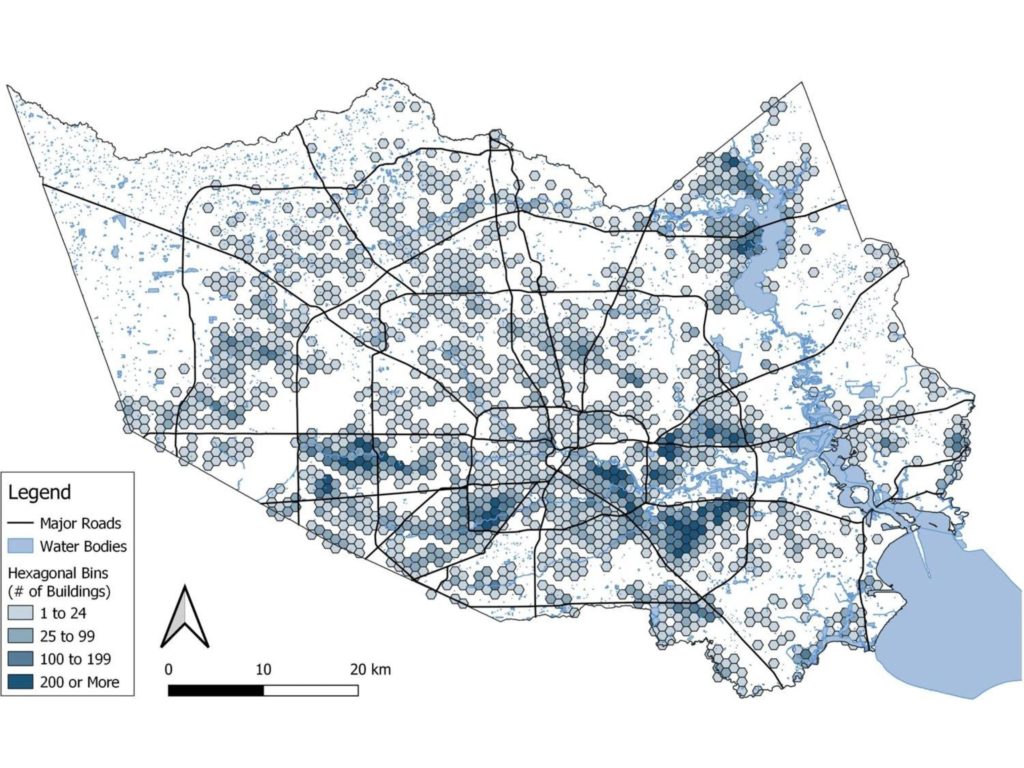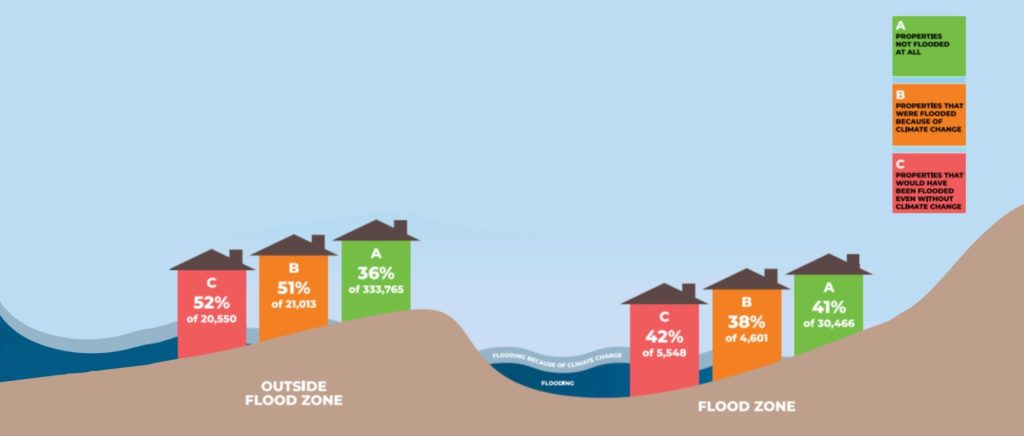New research estimates that climate change increased the number of properties flooded during Hurricane Harvey by up to 50%, disproportionately impacting disadvantaged, minority communities
Recent extreme weather events clearly highlight the growing influence of climate change on catastrophes
Fathom’s research suggests that severe flash flooding (pluvial) events will increase drastically, including those driven by hurricanes.
Attribution science allows us to estimate the impact of climate change on specific events using factual and counterfactual simulations of floods.
This research, led by Dr. Kevin Smiley of Louisiana State University, uses data from Fathom-US 2.0 to examine the damage caused by Hurricane Harvey when it hit Texas in 2017. The authors find that 30 to 50% of flooded properties would not have flooded if it were not for human-caused climate change.
Of this, climate-induced damages disproportionately impacted low-income Latina/x/o neighbourhoods outside FEMA’s 100-year floodplain.


Head to Nature Communications for the full paper
Following its publication, this research received significant traction from the media. Coverage includes:
The Washington Post. Available here: https://www.washingtonpost.com/climate-environment/2022/08/25/hurricane-harvey-climate-change-study/
The New York Times. Available here: https://www.nytimes.com/2022/08/25/climate/hurricane-harvey-climate-change.html
The Independent. Available here: https://www.independent.co.uk/climate-change/news/hurricane-harvey-houston-flood-climate-change-b2152740.html
Science Daily. Available here: https://www.sciencedaily.com/releases/2022/08/220825091354.htm
Phys.Org. Available here: https://phys.org/news/2022-08-climate-exacerbated-hurricane-harvey-low-income.html


